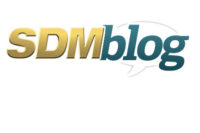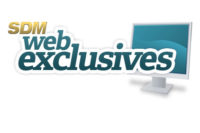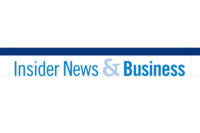One in every five security dealers among SDM’s subscribers participate in an authorized dealer program. Security dealers join dealer programs for a variety of reasons. One of the most important is brand. SDM talked to security dealers involved in dealer programs and with manufacturers and central stations that offer dealer programs about the benefits — as well as the limitations — that come with a strong brand.
More than a decade ago, Mark Tosani’s Orlando-based alarm company was in the dealer program that AT&T operated and subsequently folded. Forced to look for a new dealer program, Tosani opted to join the one operated by Cromwell, Conn.-based Safe Home Security. “What we like about it is funding reliability,” comments Tosani. Safe Home, he says, is “very sound financially.”
At that time, Tosani also changed the name of his company to Safeguard 24 and began using Safe Home’s Safeguard America brand. That was a logical decision because Tosani sells accounts to Safe Home and that is the company with which the account will have a long-term relationship.
Safeguard 24 uses a variety of materials with the Safeguard America brand that are provided by Safe Home, including yard signs, brochures, home show booths and contracts.
Vaughn Lemoine also opted to use the Safeguard America brand when he launched a new company, officially known as Security Force Enterprises, in Palm Beach, Fla. Lemoine sells most, but not all, of his accounts to Safe Home and that reality also figured into the decision to use the Safeguard name, just as it did for Tosani. “After the installation, customers will work primarily with Safe Home/Safeguard,” Lemoine notes.
Even when Lemoine’s company keeps an account it uses the Safeguard name. “A customer we keep could be right next door to one I sold and they would never know the difference,” he observes.
The reason the customers wouldn’t know the difference is that both would be monitored and supported by Safe Home. “They provide almost everything,” Lemoine comments. He notes, for example, that Safe Home provides customer service, billing, retention and legal support even when his company keeps an account. “They provide a full platform to allow us to do what we’re good at, which is creating new accounts,” Lemoine shares.
Both Tosani and Lemoine agree, however, that using the Safeguard America brand works because only a few other dealers use it and they are separated geographically. “We’re not in a situation where it’s oversaturated,” comments Tosani. “They’re not putting 15 dealers on top of each other.”
Branding Synergies
Some other dealers prefer to use their own name in addition to the brand name associated with their dealer program, particularly if they are already well established in their market and if they keep their accounts long term.
Two dealers who are in Bosch Security Systems’ dealer program — including Miami Beach, Fla.-based York Security Solutions and Phoenix-based Climatec Building Technologies Group — opted to use their own name but also to emphasize the fact that they are Bosch authorized dealers.
“The Bosch brand is known for quality and reliability,” observes Glenn Kelly, business development manager for Climatec. “Being able to take that to our customers helps us in our marketing efforts.”
Bosch encourages dealers in its dealer program to use their own brands along with Bosch’s, observes Tom Mechler, product marketing manager for the Fairport, N.Y.-based manufacturer. “End users want to feel like they’re being served by someone who’s local but they also want a tie to a national brand they recognize,” Mechler says.
Marek Robinson, president of authorized dealer programs for Melville, N.Y.-based manufacturer Honeywell Security, offers similar advice.
Local dealers — whether they’re in the First Alert Professional, Honeywell Commercial Security Systems or Honeywell Integrated Security dealer program — typically are a “recognized brand in their community,” Robinson says. “They’re the recognized brands that are backed by the resources of a First Alert Professional or Honeywell.”
Honeywell has done a lot of research about its brand, Robinson observes. “The Honeywell name in general is considered one of the most recognized names in the market,” he claims. In addition, he notes that the First Alert Professional brand has a “fair amount of consumer recognition” because many end users have used First Alert Professional fire detection products.
Dealers in the Honeywell programs are “the ones who have the relationship with the school, community or business,” Robinson explains. What end users like about the Honeywell or First Alert Professionalaffiliation, he says, is that it brings “the resources of a multinational company.”
Warrendale, Pa.-based central station company Guardian Protection Services also has a strong brand, observes Brian Helt, vice president of the company’s authorized dealer program. “Our brand helps dealers because it matches the consumer’s expectation for credibility and competency,” Helt comments. This credibility is a function of the number of years Guardian has been in business, as well as other factors such as the rating it has with the Better Business Bureau and other consumer agencies; certifications it has such as UL and CSAA Five Diamond certification; and ratings it has within the industry such as a top 10 ranking on the SDM 100 Report, Helt explains.
Nevertheless, Guardian also recognizes the strengths of local brands and encourages dealers to lead with their own brand, reserving the Guardian brand for closing the deal, Helt notes. And if dealers use the Guardian logo on promotional materials and the like, they also must use their own logo, which must be at least twice the size of the Guardian logo.
Strengthening the Brand
Central stations and manufacturers with dealer programs can strengthen their brands and their programs by further defining what their brands mean in the context of those programs. For example, both Honeywell and Bosch look for established dealers with good reputations for their programs. Their authorized dealers likewise can strengthen those brands and differentiate themselves by explaining this to potential customers.
“Being able to say ‘Bosch has vetted us’ gives us a certain credibility,” believes Jamie Bienenfeld, vice president of York Security Solutions.
“We vet dealers to make sure they have the right insurance and license and that they’re fundamentally sound,” notes Howard Avin, vice president of sales and marketing for Freeport, La.-based Nationwide Digital, the central station company that operates the Security Doctors dealer program. The Security Doctors program provides a wide range of marketing support to dealers in its program, Avin says, including a template for an end-user website where dealers can explain that they must meet certain qualifications to be in the Security Doctors program.
Nationwide Digital offers funding options for dealers in its program and monitors the dealers’ accounts but does not purchase accounts. End users are billed by individual dealers and their primary relationship is with the dealer. Accordingly, dealers in the Security Doctors dealer program are encouraged to use both their own name and the Security Doctors name.
Marketing Collateral
Most companies that operate dealer programs make it easy for dealers in the programs to promote their brand by providing brochures, contracts, signage for dealer vehicles, yard signs and other materials at no charge. Some also loan out trade show booths with their logos for dealers to use at home shows and other events.
Providing human resources to help dealers with marketing is another way some dealer programs promote their brand. For example, Honeywell has agreements with third-party providers to help dealers with social media marketing. Dealers in Honeywell’s program get better terms for these services than they would if they bought the services on their own, Robinson share. And Monitor America, a central station operator that launched a dealer program this year, has people on staff to help its dealers create marketing materials.
Monitor America — which has an emphasis on video, access control and personal emergency system monitoring — encourages dealers in its program to use their own name because “in their geographic area they’re the face in front of the customer,” said Steve Ipson, director of business development for the Moonachie, N.J.-based company. But dealers can use the Monitor America name in addition to their own.
Not Just About the Brand
Although dealers appreciate the benefits they get from being associated with a strong national brand, some of them say that is not where they see the greatest value in the dealer program.
For example, LeMoine joined the Safe Home program because he liked the personalized attention the program would provide and the ability to retain some accounts.
Brand was a key factor in Phoenix-based Safeguard Security and Communications’ decision to join Honeywell’s First Alert Professional dealer program 15 years ago. But Safeguard CEO John Jennings says he finds the greatest value today in other aspects of the program such as the products that are only available to First Alert Professional dealers and the opportunity to learn from other dealers. (Jennings’ company is not related to Safe Home and Safe Home doesn’t use the Safeguard brand in the area that Jennings’ company serves.)
John Loud, president of Kennesaw, Ga.-based LOUD Security Systems, joined the First Alert Professional program because he perceived it would provide “a partner to help me.” Loud attributes the three-fold growth LOUD Security has seen over the past decade to the company’s joining the First Alert Professional program eight years ago. “They bring in best practices,” Loud explains. But although the First Alert Professional and Honeywell brands did not figure heavily into LOUD’s decision to join the dealer program, Loud says the affiliation has been helpful in sales pitches. Salespeople emphasize Honeywell’s strength in the defense industry, along with the fact that the company selects a limited number of partners and that “we were invited into that organization,” Loud emphasizes.
What’s New With Dealer Programs
Companies that offer dealer programs like to keep them fresh by continually enhancing them. We asked manufacturers and central stations that offer dealer programs what changes or additions they have made in the last year or so. Here’s what they told us.
- Bosch Security Systems revamped its website to make it easier for end users interested in a Bosch security system to find a dealer in their area who is involved with the program. “We’re trying to push all of our business toward dealers,” explains Tom Mechler, product marketing manager for Bosch.
- The Monitor America dealer program is a new one. The central station company launched its program in mid-2013 with a focus on monitoring video, access control and personal emergency communications systems. The company currently doesn’t buy accounts, but as Monitor America Director of Business Development Steve Ipson explains, “We’re working with an outside company to create financing and loan options.”
Dealers in the Monitor America program can get marketing support, an answering service and other benefits.
- Guardian Protection Services recently decided to offer a multi-year financing program that will “allow qualified dealers to retain a portion of their accounts, at their option,” observes Guardian CEO Russ Cersosimo. “By offering this new financing program, we believe we have redefined the term ‘partnership’ in the dealer space,” Cersosimo says. “In essence, we will function as a ‘bank’ for qualified dealers, letting them borrow money that might not normally be available to them through traditional lending sources.” Noting that the money can be used to finance the cost of accounts, Cersosimo adds that “as a result, our dealers can build long-term value in a portfolio of monitoring accounts that they will continue to own.”
- Honeywell launched a new tool aimed at helping companies in its First Alert Professional and Commercial Security Systems dealer programs track their success with interactive services. Those services give end users the ability to check in on and control their systems, provided that the system uses digital cellular or IP network communications. The interactive services are delivered through Honeywell. Accordingly, Honeywell can provide dealers with a quarterly report showing the dealers’ “attach rate” for interactive services.
“Systems that have interactivity tied to them are less likely to cancel,” observes Honeywell Security’s Marek Robinson. “Those accounts become more valuable.” Conversely, if the attach rate is low, “it presents a huge risk to the business and could decrease the value of the company,” he notes.
Honeywell also plans to launch a new smartphone app for companies in the First Alert Professional and CSS programs that will provide key contact information within Honeywell, such as tech support. In addition, the app will have an event calendar and will provide information about corporate alliances available through the dealer program such as third parties that provide marketing and printing services.
Honeywell expects to generate more sales leads for its First Alert Professional and Commercial Security Systems dealer programs through a new relationship with LifeWay Christian Stores, one of the world’s largest providers of Christian products and services.
- Nationwide Digital / Security Doctors recently added Spanish-speaking central station operators and has begun to offer cellular and cellular mobile PERS monitoring.
- United Central Control, at press time, was working on a deal with a distributor that offers control panels from 2GIG by Linear. “Anyone who uses us for monitoring could get a fairly substantial discount” on the 2GIG panel when purchased through the partner, explains Mark Matlock, senior vice president for San Antonio, Texas-based United Central Control.
New Brands in the Business
Some of the newest brands in the security industry are also some of the most powerful brands.
Over the last few years, the nation’s largest telephone companies — AT&T and Verizon — have launched home control and security services in more and more markets. The nation’s largest cable companies — Comcast and Time Warner Cable — have done the same.
Some phone and cable companies are using their own employees to handle sales, installation and service of security and home control systems — a move that would seem to make sense in areas where the companies offer broadband, voice and entertainment services. However, a dealer program also would seem to make sense for these companies, particularly as they expand beyond their home turf.
Several of these companies seem to be guarding their plans carefully, however. Of the four companies, the only one that responded to SDM’s inquiry was AT&T. An AT&T spokeswoman told SDM the company is not using independent dealers for its program.






